Specialty Glass — Available Colors
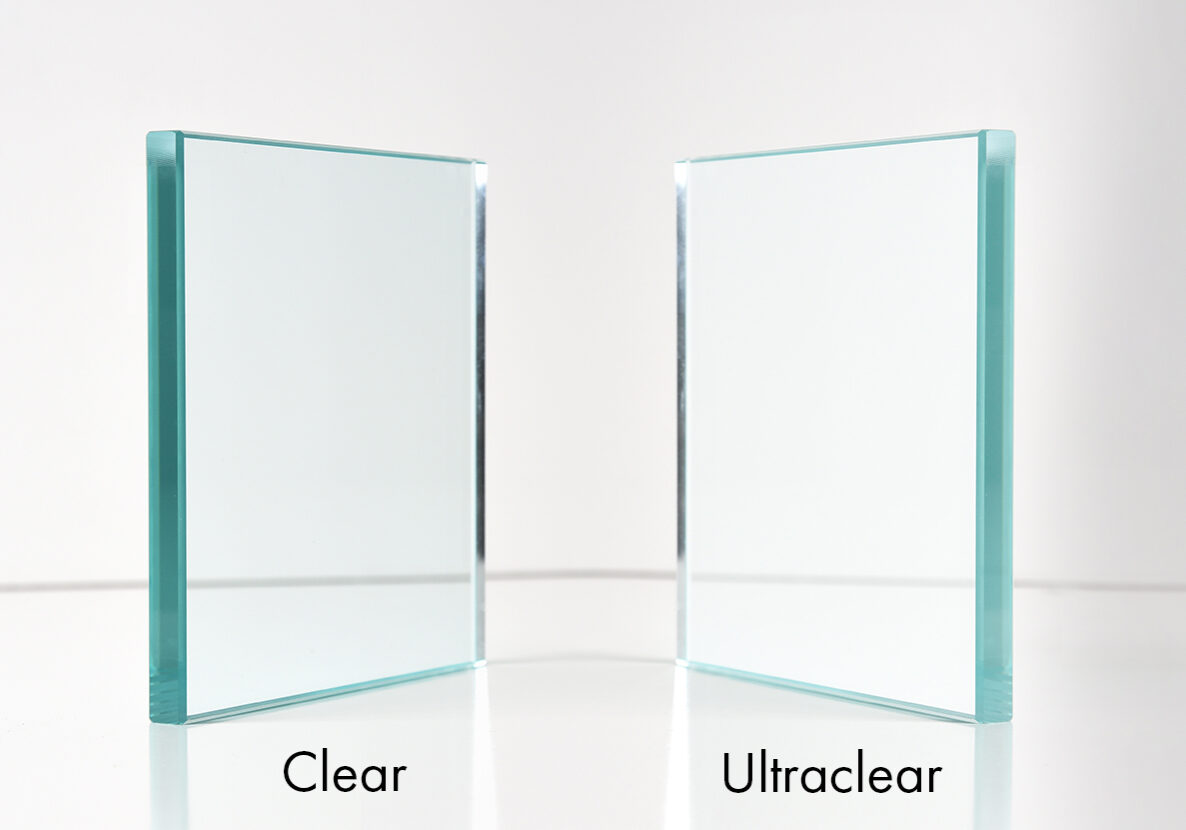
Clear Glass vs. Ultraclear Glass
The clarity of glass is determined by its iron content. Clear Glass, which is the standard glass that is used for table tops, has a slight green tint. This tint becomes more evident the thicker the glass is.
With a lower iron content than that of Clear Glass, Ultraclear Glass is much clearer. However given the right lighting conditions and background, it can still be perceived as having a slight blue-green tint.
,Please note: The look of glass is heavily influenced by the color and intensity of the light passing through it as well as the environment around it. On top of this variations in the color balance of monitors will also affect the look of the glass when viewed on a computer.
Ultraclear Fusion Glass
Fusion Glass is made up of multiple layers of glass that are fused together in an oven, in a process that takes up to seven days. The low iron content of Ultraclear glass leaves it with a pale blue tint — which becomes slightly more pronounced the thicker the glass is. Available in four different bottom textures and up to 3-inches thick.
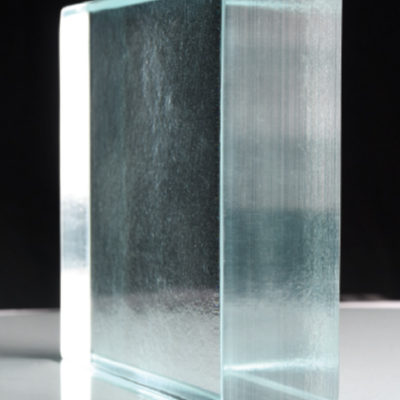
Minimal Fusion Glass
(Ultraclear)
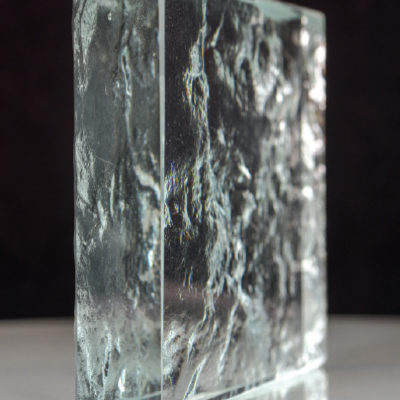
Seascape Fusion Glass
(Ultraclear)
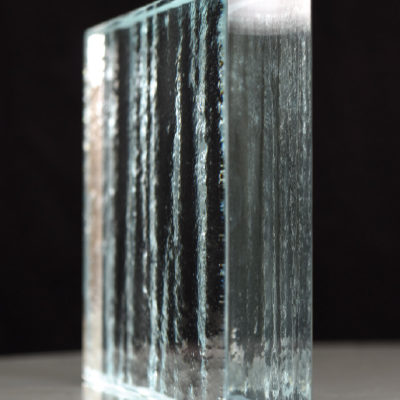
Glacier Fusion Glass
(Ultraclear)
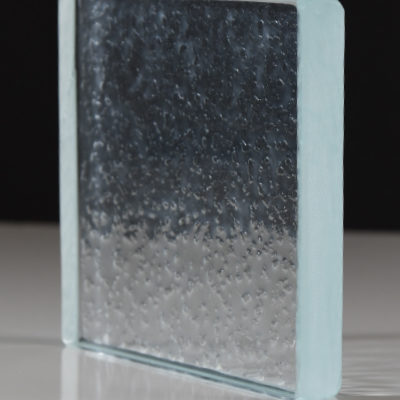
Pebble Fusion Glass
(Ultraclear)
Clear Fusion Glass
Fusion Glass is made up of multiple layers of glass that are fused together in an oven, in a process that takes up to seven days. Clear glass leaves it with a blue green tint which becomes more pronounced the thicker the glass is, especially when viewed from the side. Available in four different bottom textures and up to 3-inches thick.
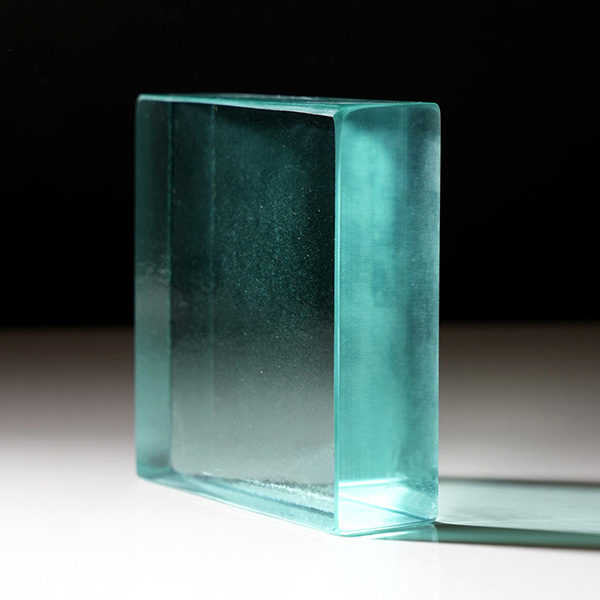
Minimal Fusion Glass
(Ultraclear)
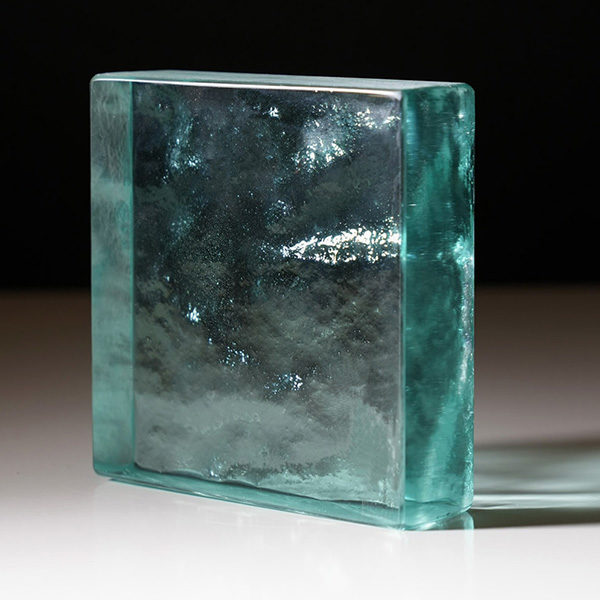
Seascape Fusion Glass
(Clear)

Glacier Fusion Glass
(Clear)
Blue Fusion Glass
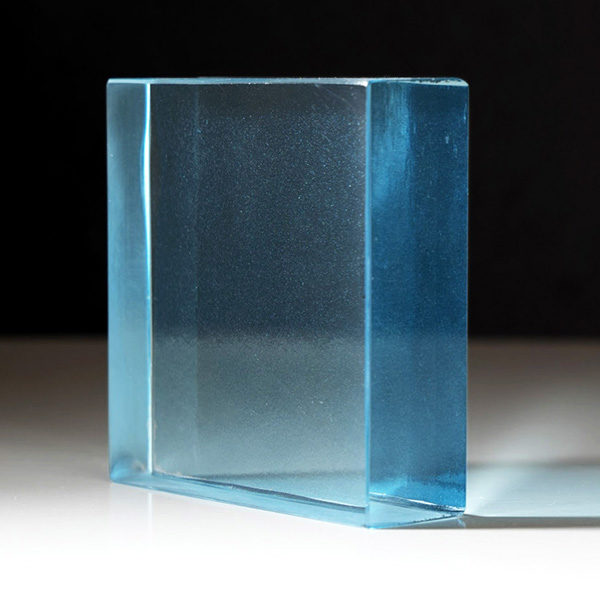
Minimal Fusion Glass
(Blue)
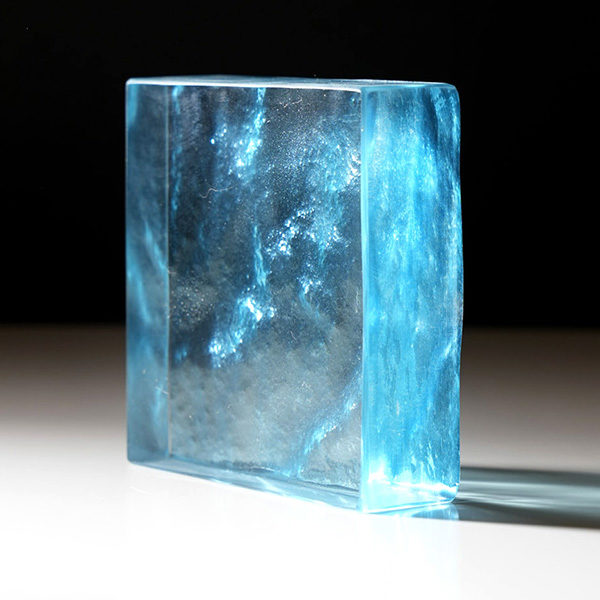
Seascape Fusion Glass
(Blue)
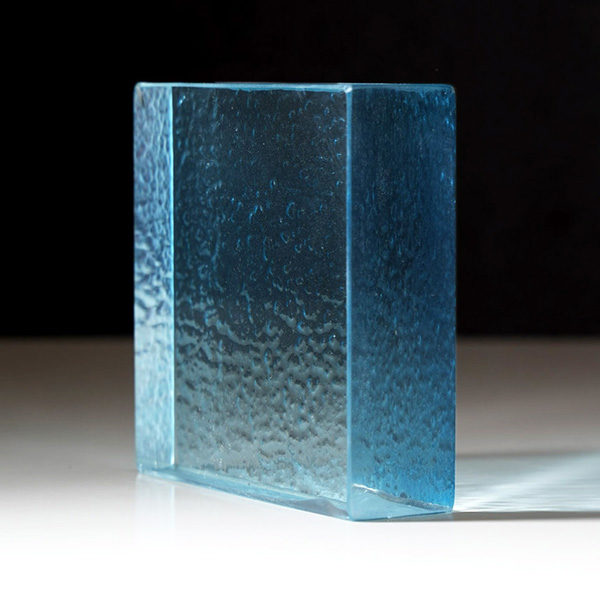
Pebble Fusion Glass
(Blue)
Acid-Etched Glass & Mirrored Glass
The top surface of the glass is chemically treated to create a matte finish with an almost satin-like feel. It can be enhanced with back-paint or mirrored on the back. Available in all Benjamin Moore & Sherwin-Williams colors.
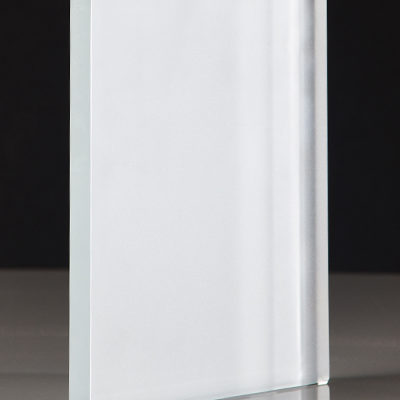
Ultraclear Acid-Etched Glass
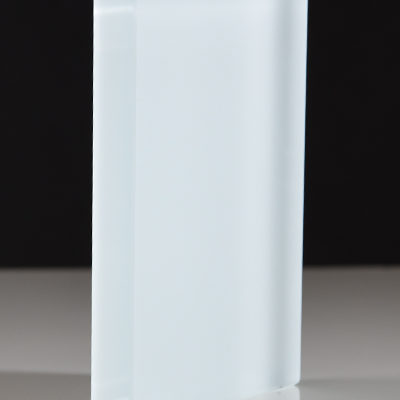
White Acid-Etched Glass
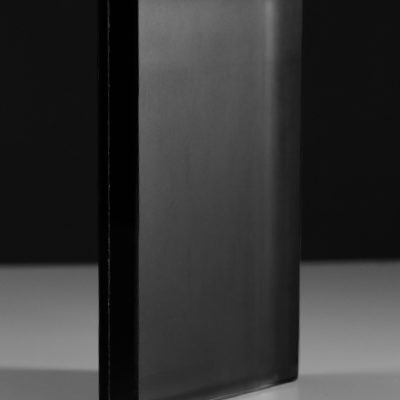
Black Acid-Etched Glass
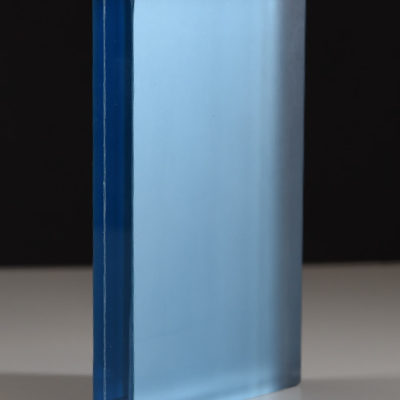
Mirrored Blue Acid-Etched Glass
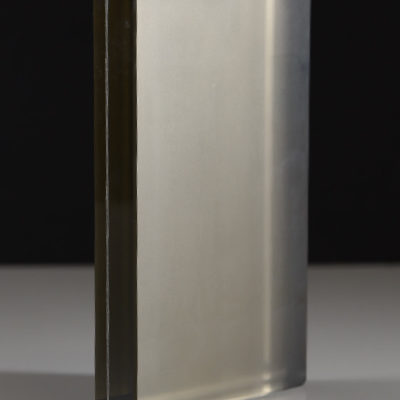
Mirrored Bronze Acid-Etched Glass
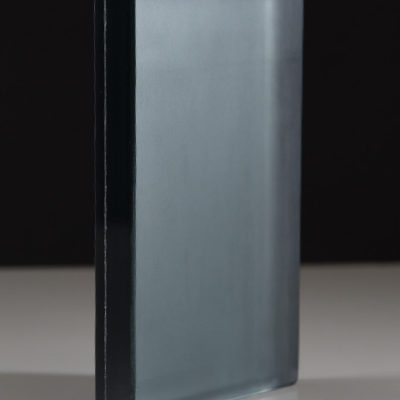
Mirrored Gray Acid-Etched Glass
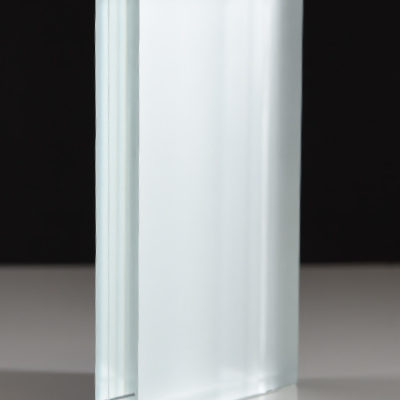
Mirrored Ultraclear Acid-Etched Glass
Facet / Crackle Glass
Known as either Facet or Crackle Glass, these tops are created by bonding three sheets of glass together with epoxy and then shattering the middle piece. These tops glass are very strong due to the three-layer lamination.
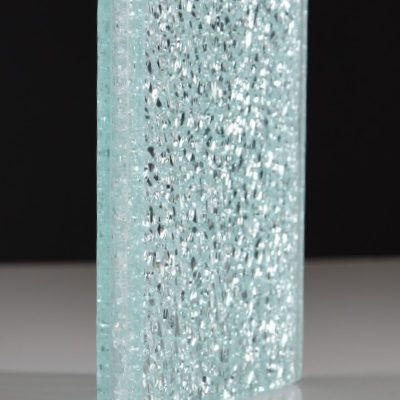
Clear Crackle Glass
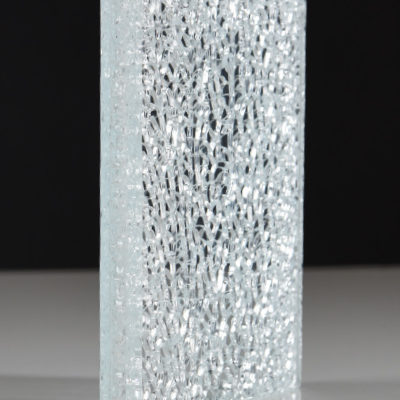
Ultraclear Crackle Glass
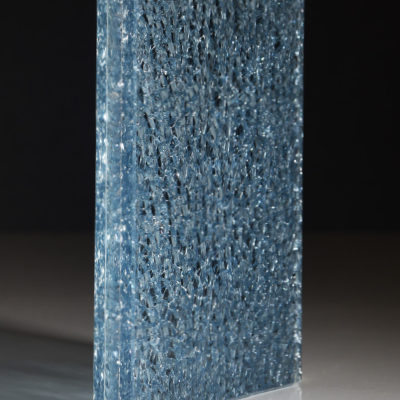
Blue Crackle Glass
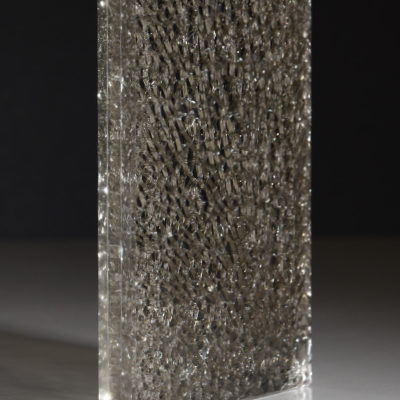
Bronze Crackle Glass
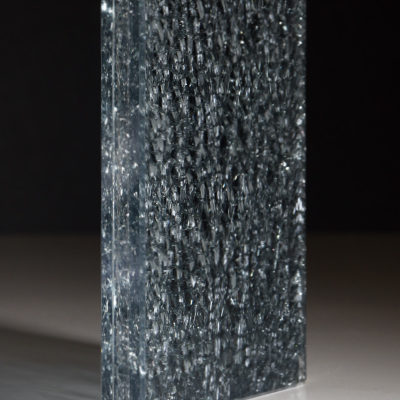
Gray Crackle Glass
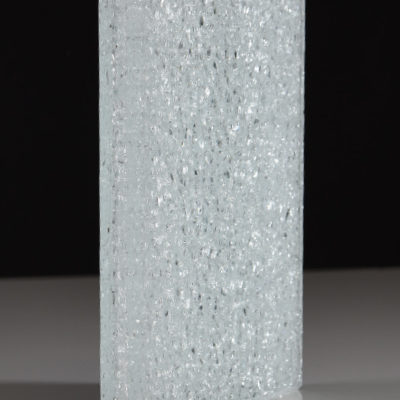
Mirrored Ultraclear Crackle Glass
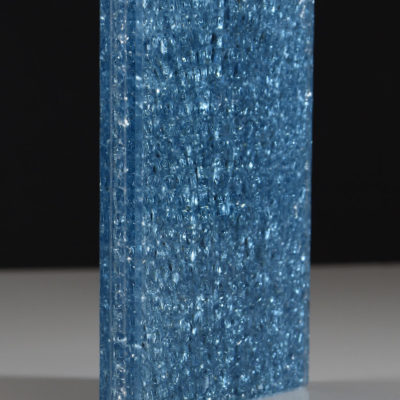
Mirrored Blue Crackle Glass
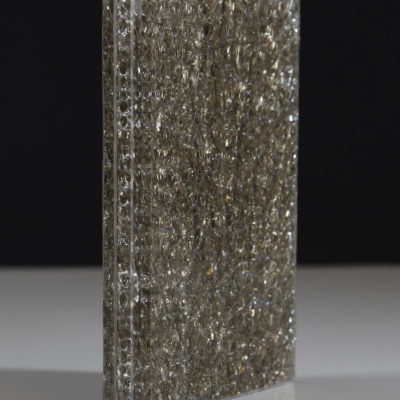
Mirrored Bronze Crackle Glass

Mirrored Gray Crackle Glass
Laminated Linen Glass
This glass is created by sandwiching a piece of linen in between two pieces of glass. They are then bonded using super-strong adhesives. Also available with a mirror backing.
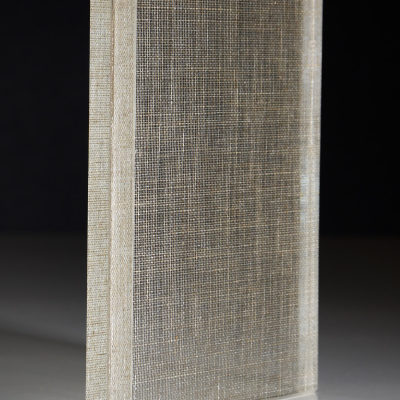
Flax Linen Laminated Glass
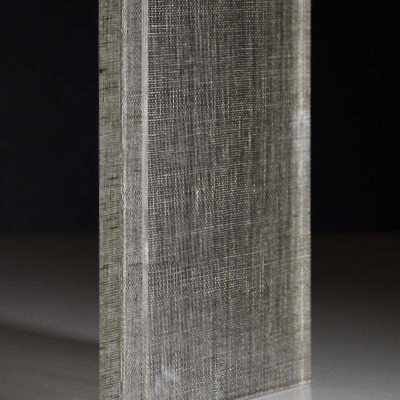
Greystone Linen Laminated Glass
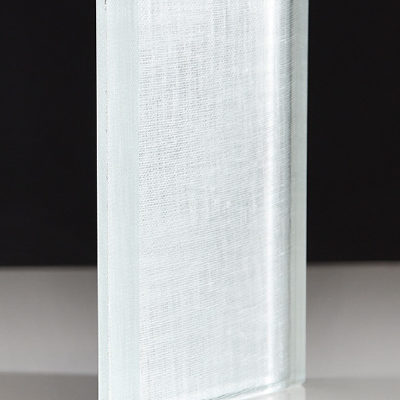
Oyster Linen Laminated Glass
Frosted Glass
Although similar in appearance to acid-etched glass, frosted glass is created by sand-blasting the underside while the top remains glossy (on Acid-Etched Glass it is the top suface that has the matte finish and the bottom is left glossy). Available on Clear Glass and Ultraclear glass.
Back-Painted Glass
Back-Painted Glass is a glass top with a layer of paint on the underside. The top is glossy and the underside can be painted to match most Benjamin Moore and Sherwin-Williams paint colors. It can also be combined with an acid-etched top. Shown on Ultraclear glass, but available with Clear Glass too.
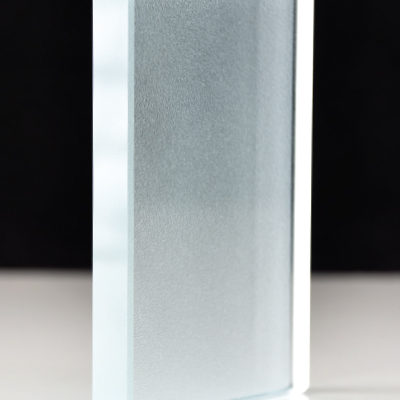
Frosted Glass
(On Ultraclear Glass)
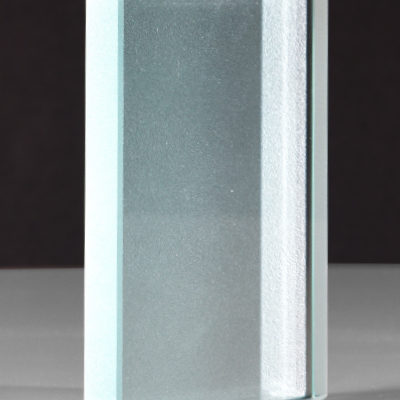
Green Frosted Glass
(On Clear Glass)
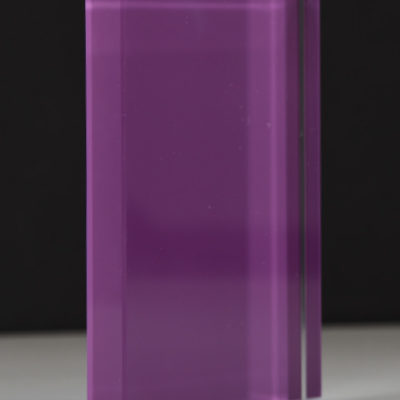
Example of Back-Painted Glass on Ultraclear
